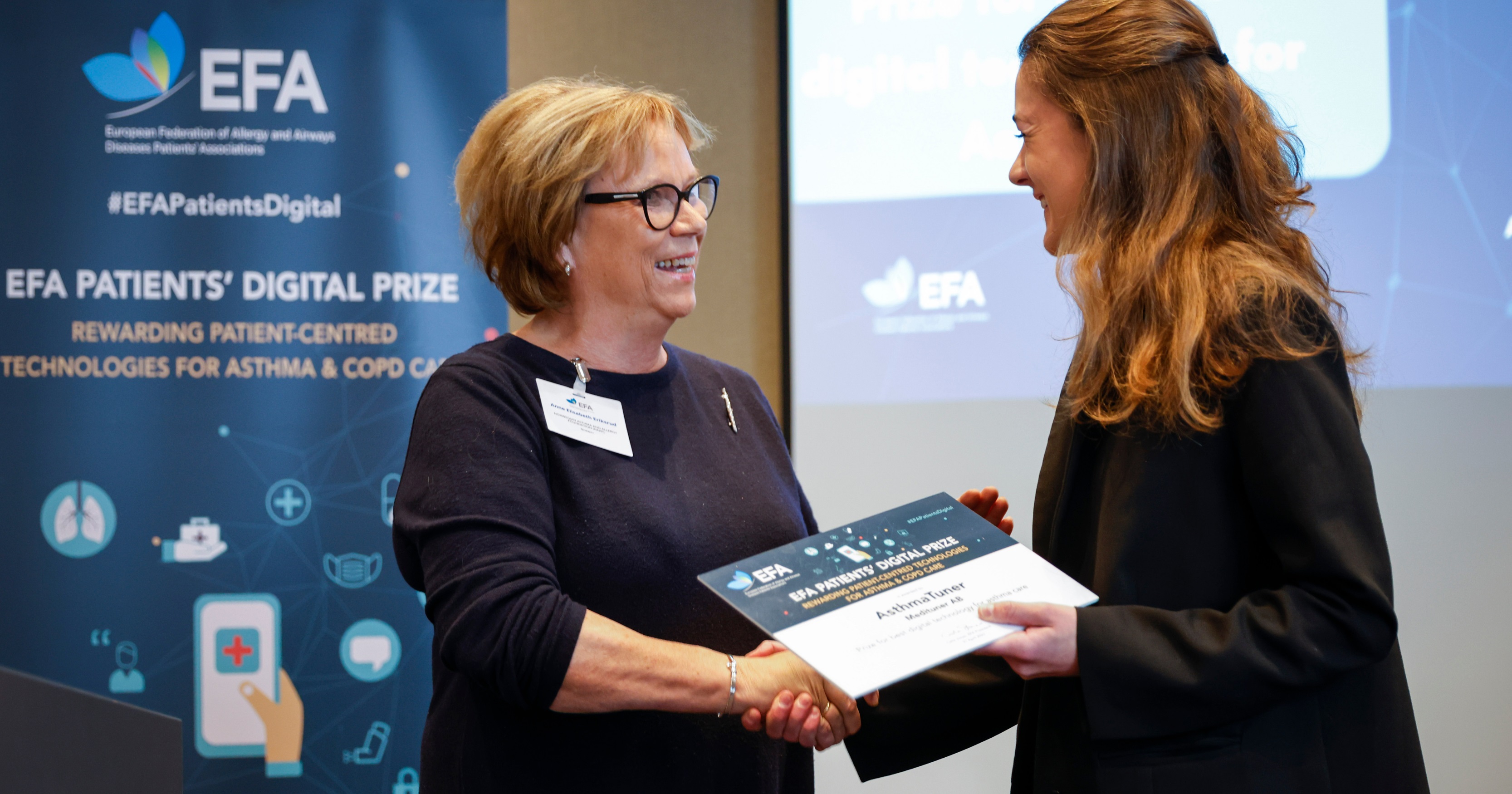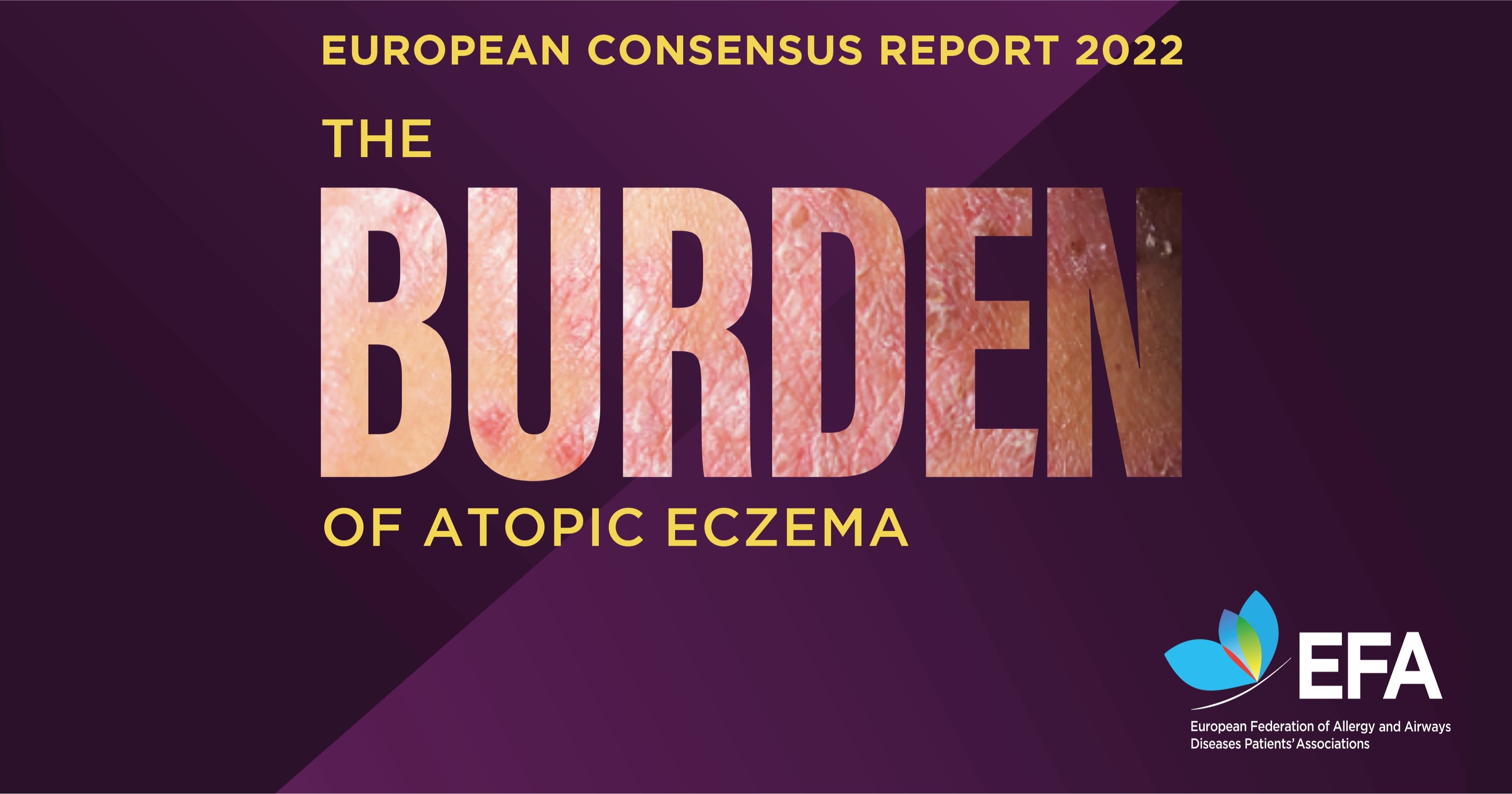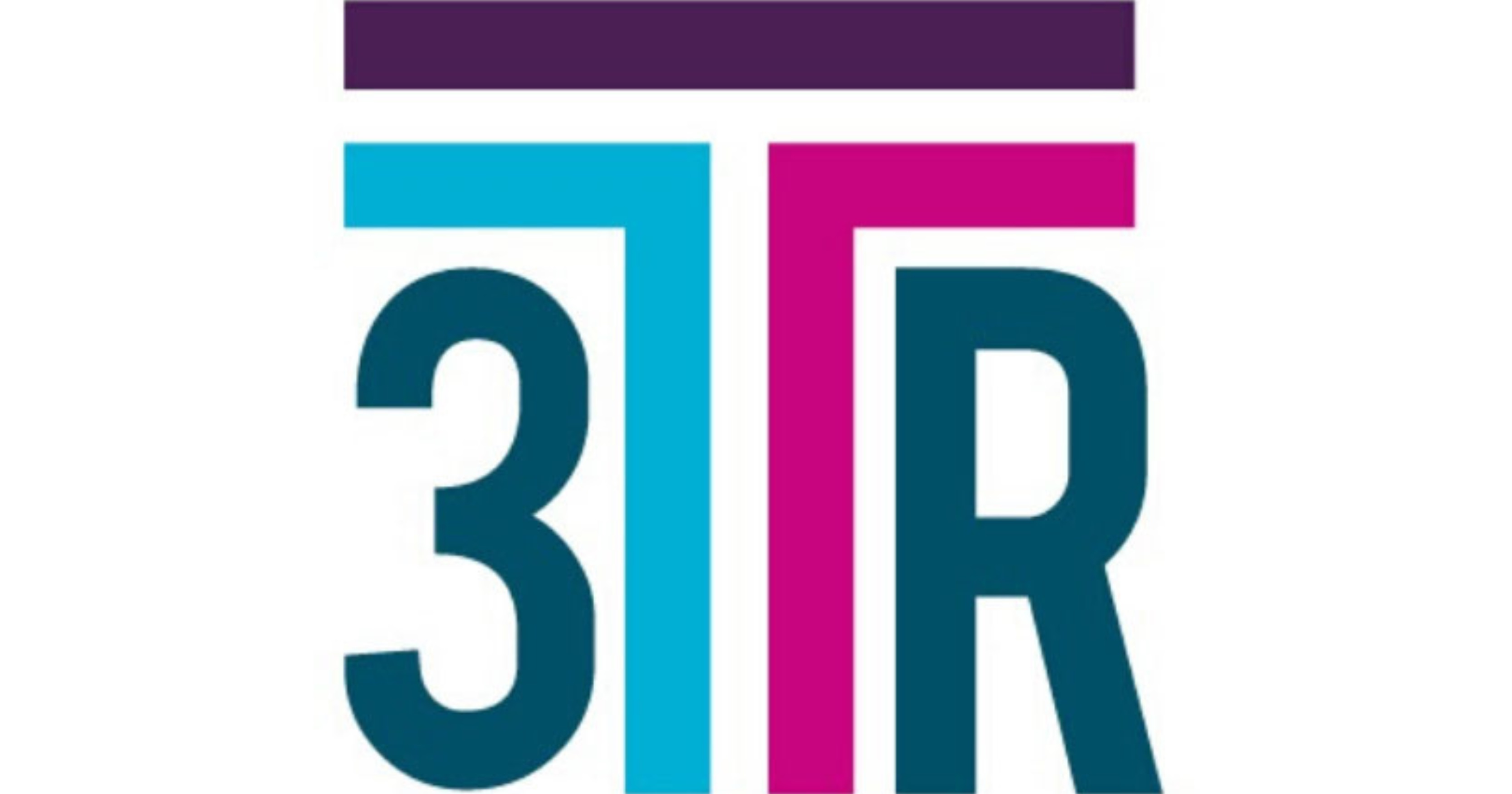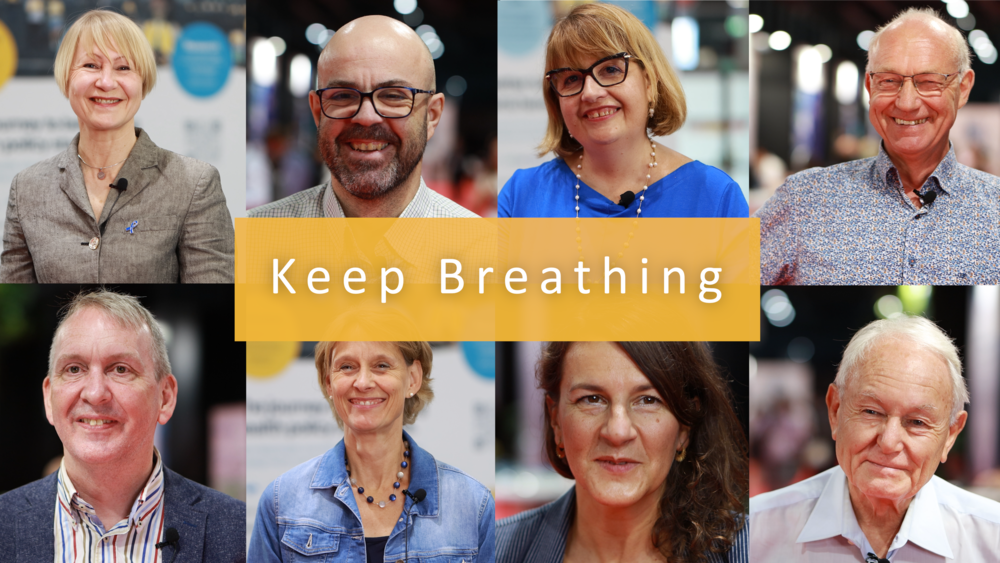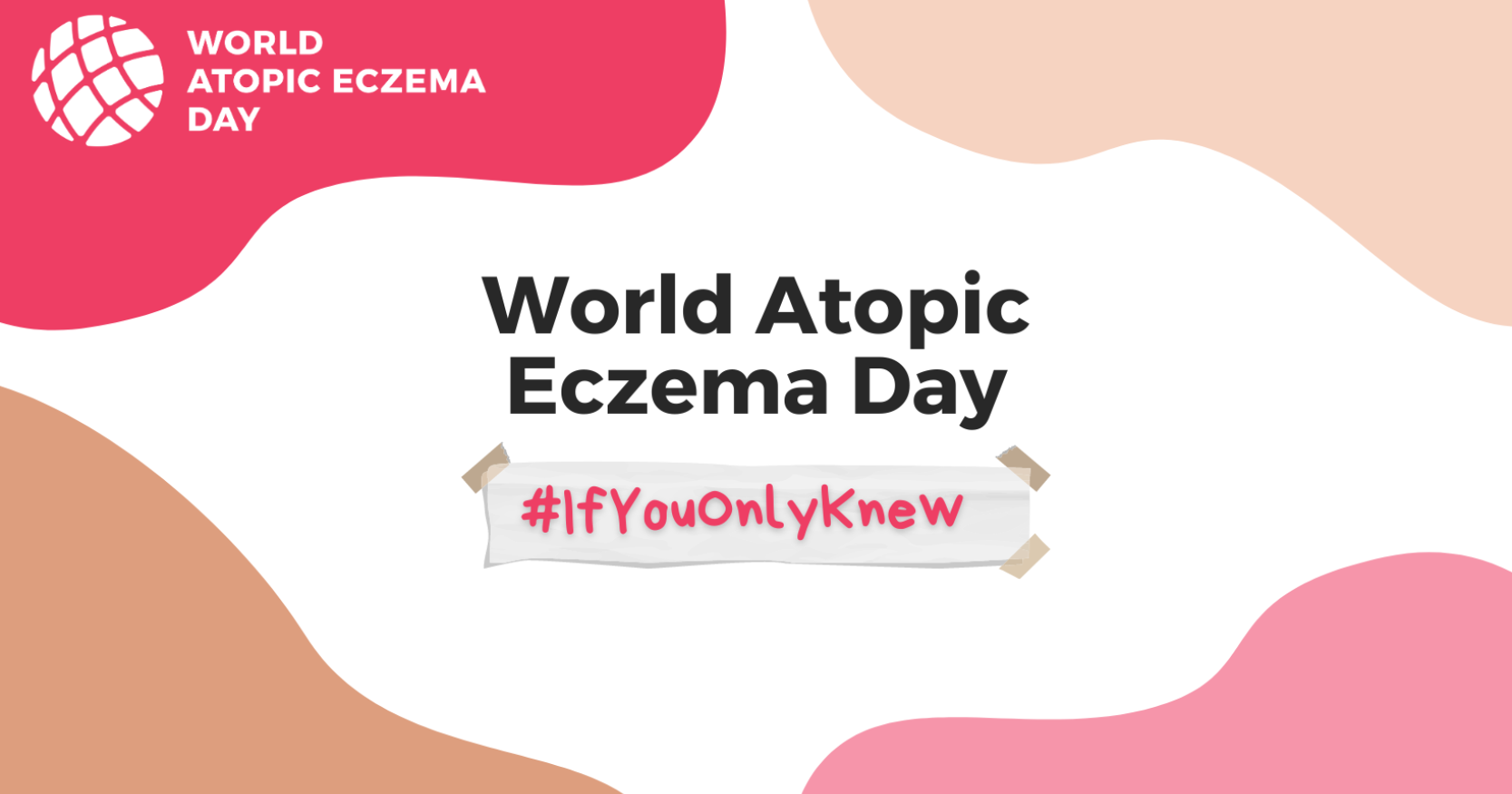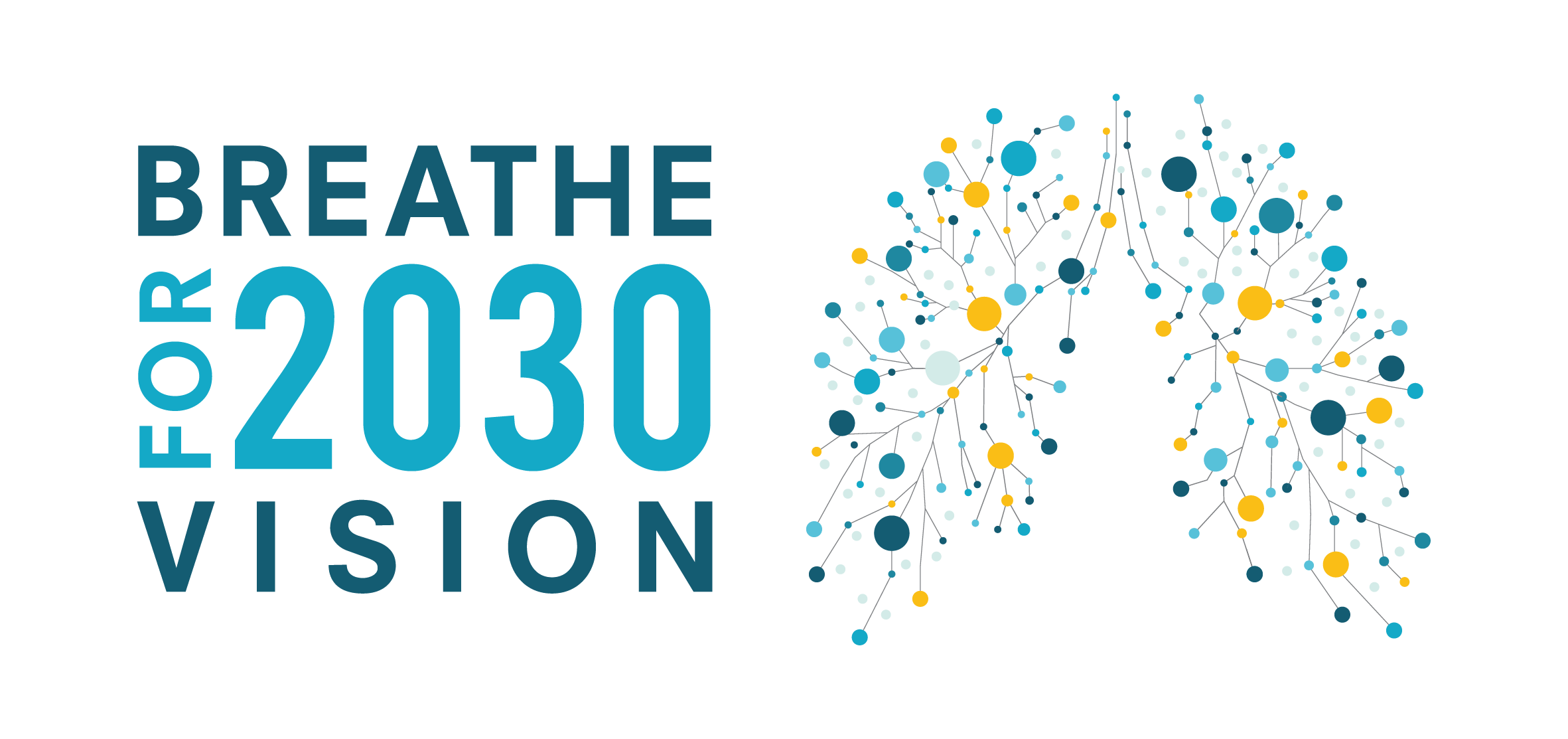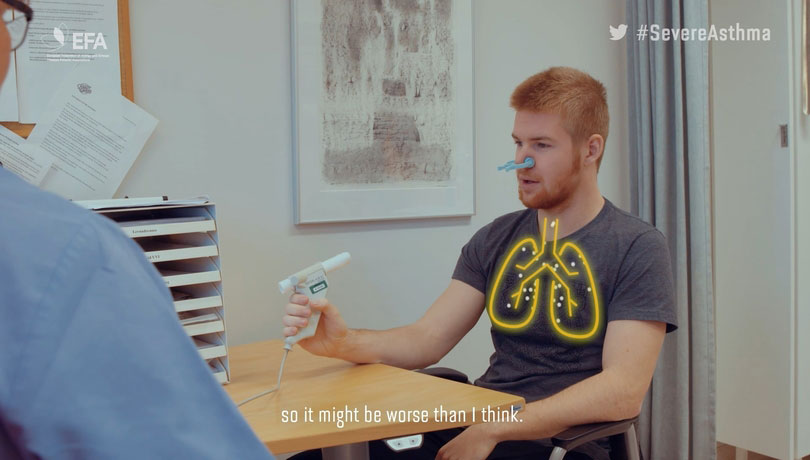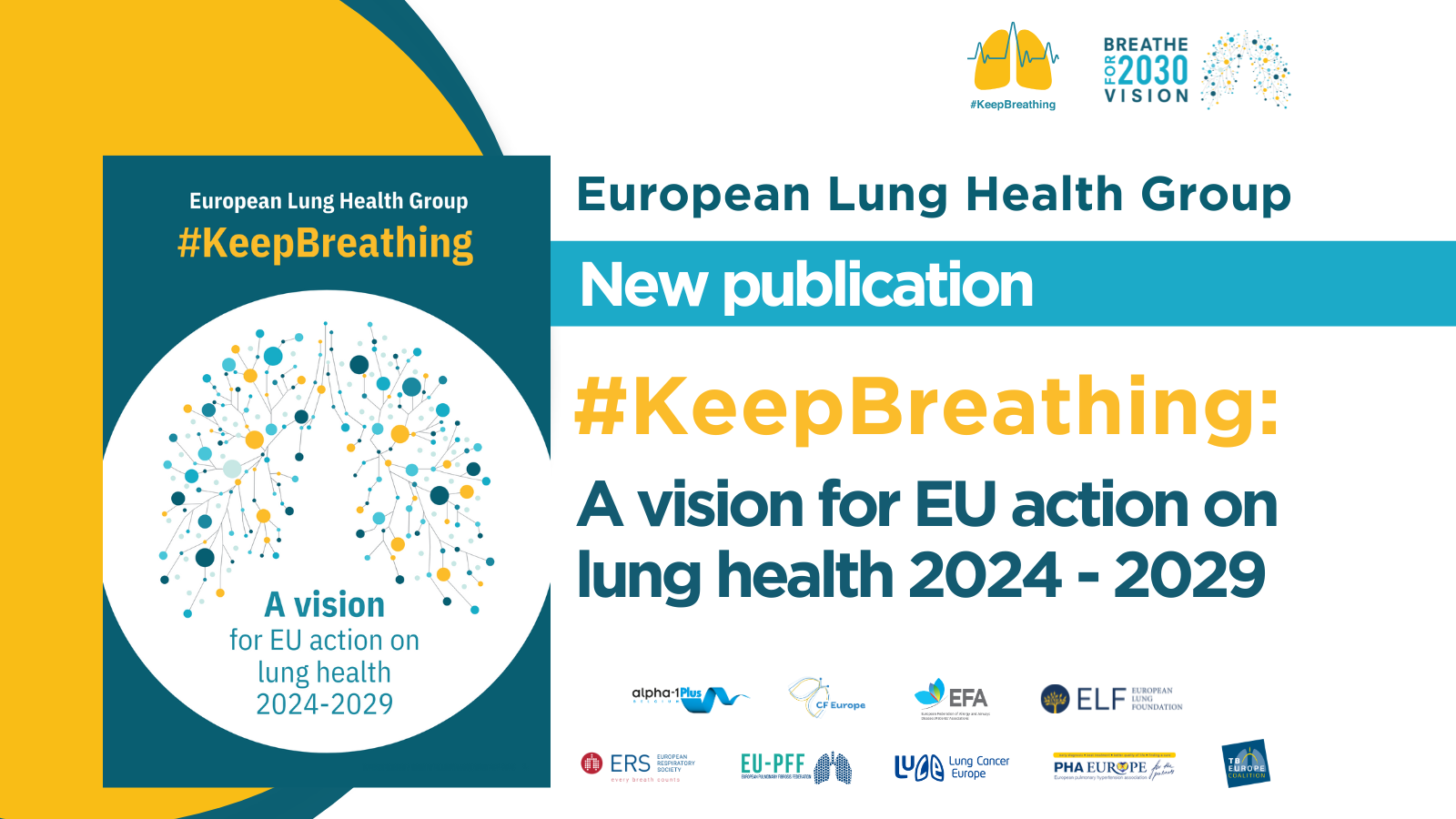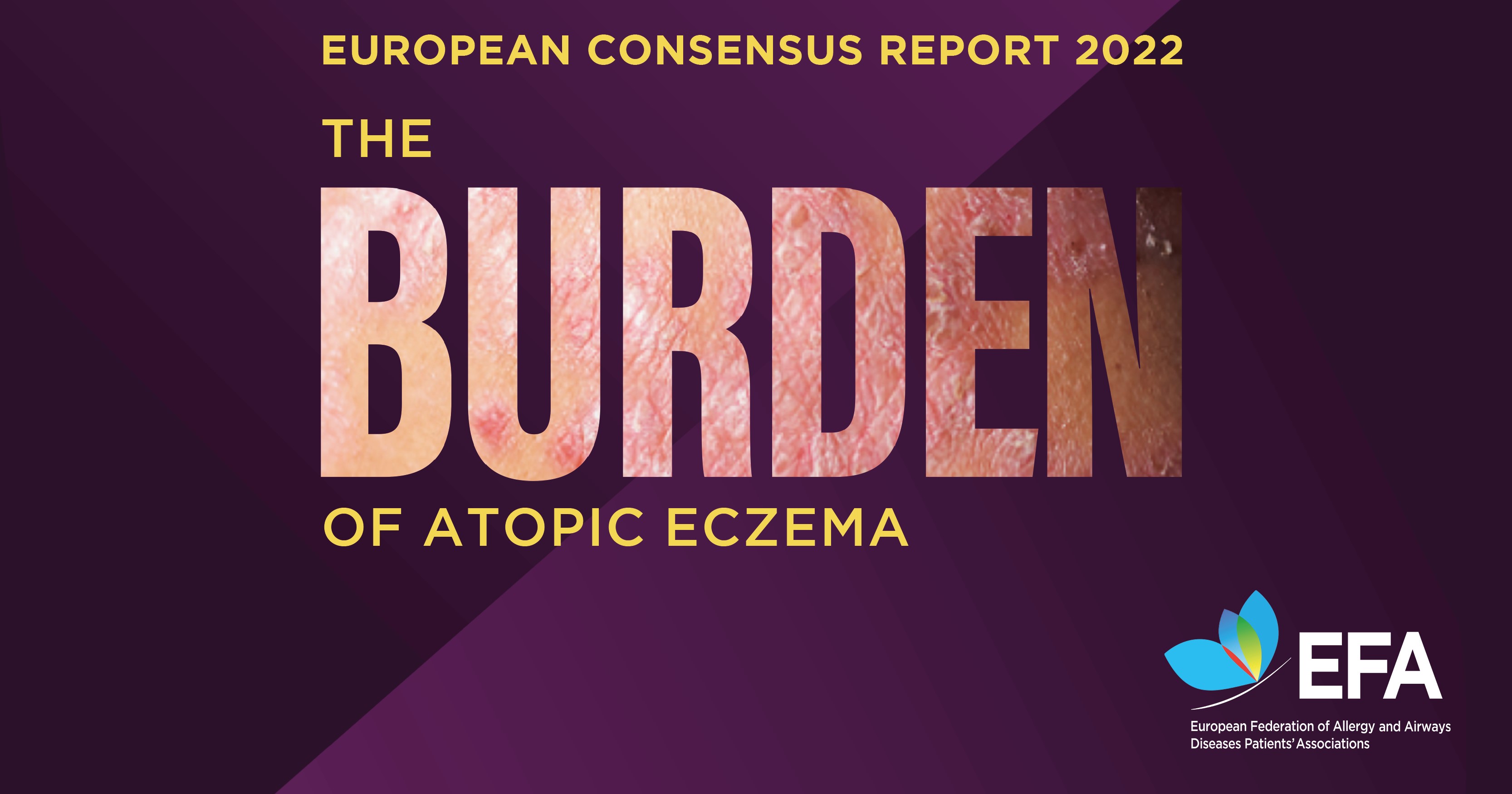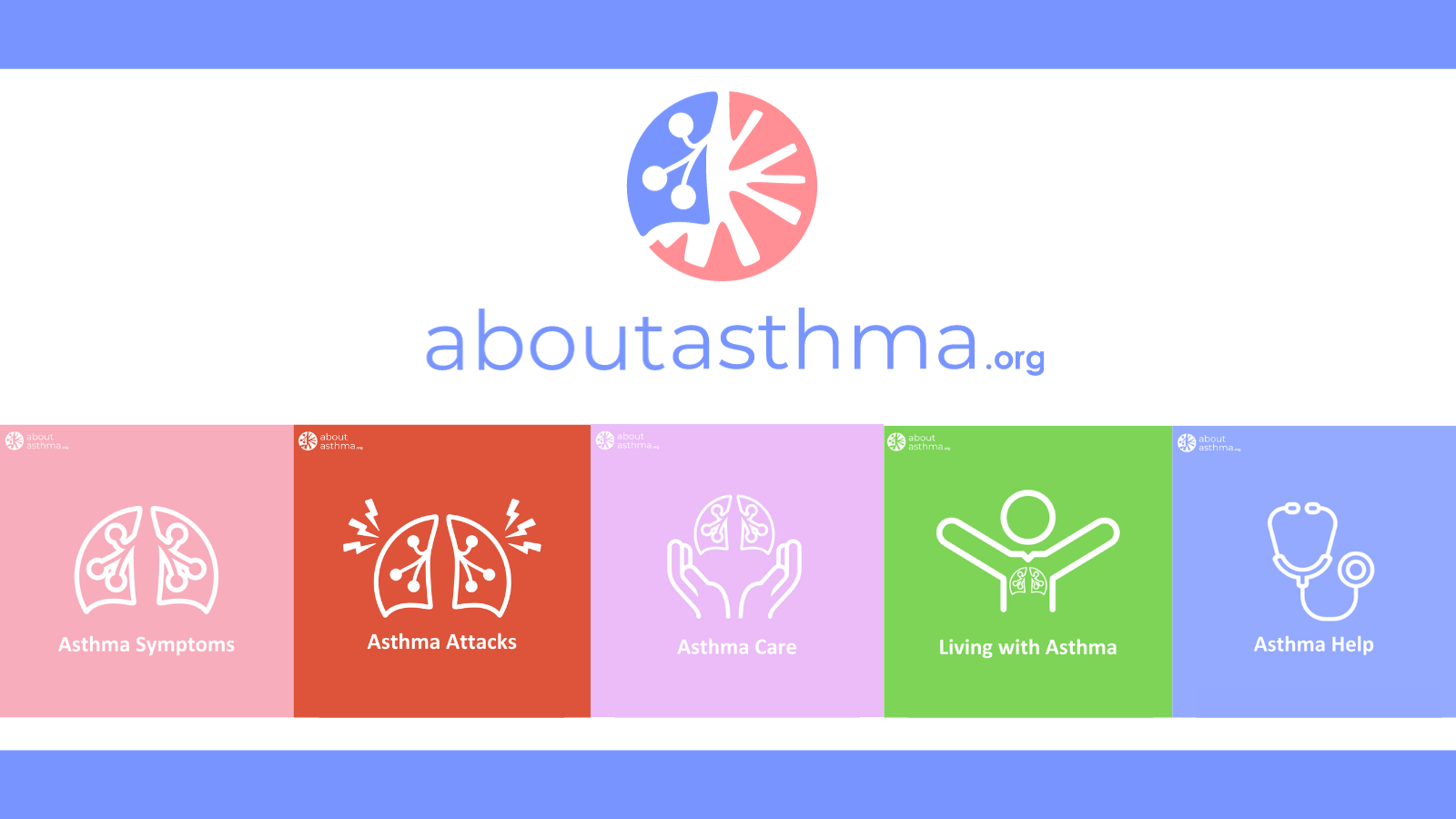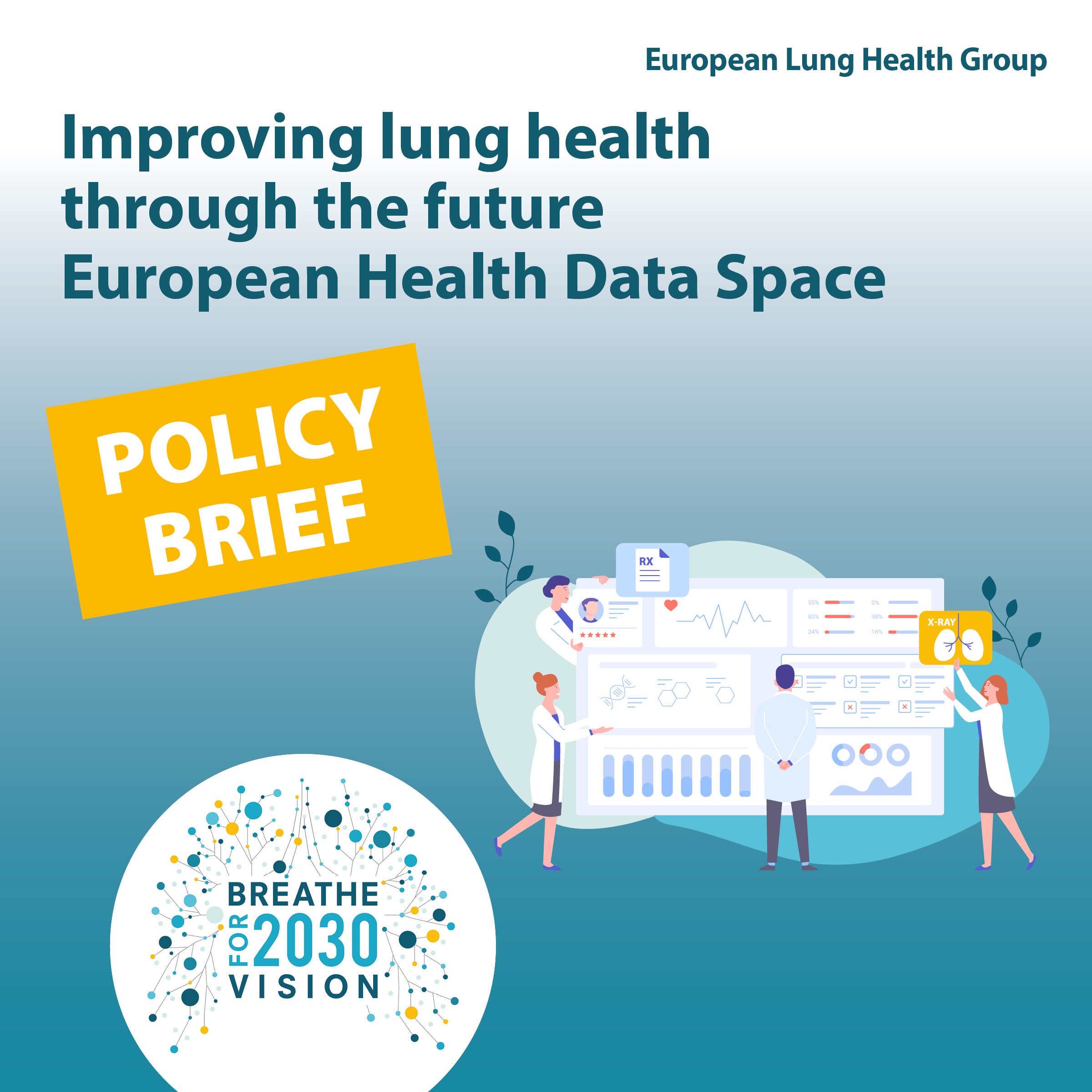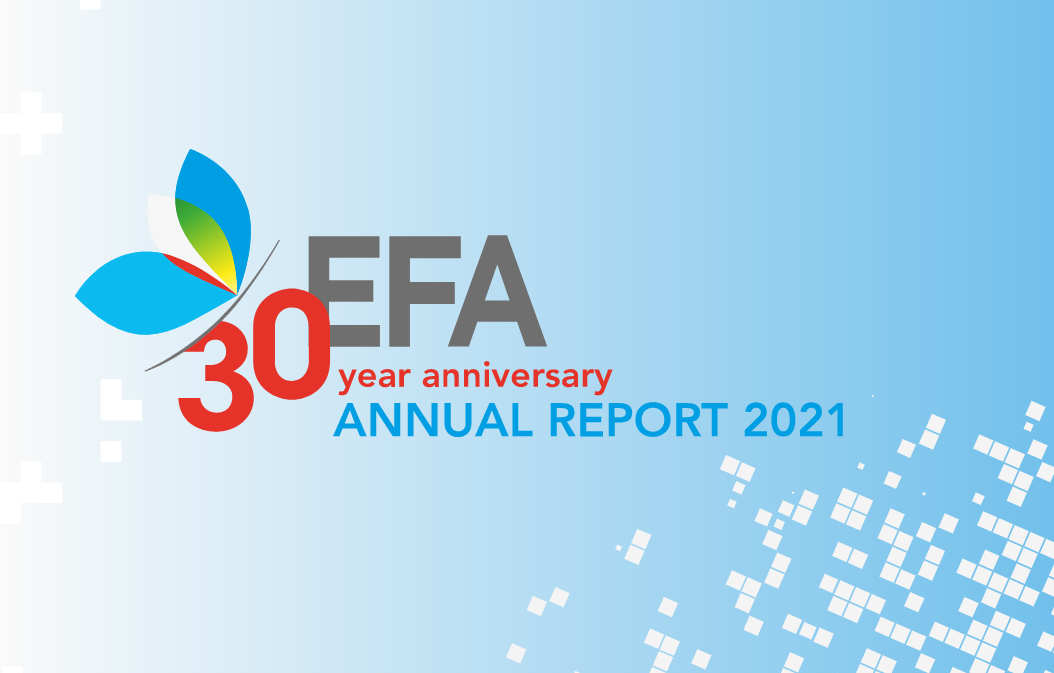EFA and the ECC Commemorate World COPD Day 2013 under the Lithuanian EU Presidency
On the 28th of November 2013, EFA and the European COPD Coalition (ECC), under auspices of Lithuanian Presidency of the Council of the European Union, celebrated World COPD Day 2013 together at a public event entitled “What role for diseases and patients in shaping Horizon 2020? A COPD case study of patient involvement” and offering a diverse range of discussions structured into three different sessions. The event offered free spirometry testing for participants throughout the day as an additional effort to raise awareness of COPD and the need to increase its use as a tool for early diagnosis.
Deputy Health Attaché from the Lithuanian Presidency of the Council of the European Union, Giedrė Medžiaušaitė, welcomed guests to the event. She underscored the seriousness of COPD prevalence in Europe and the measures the Lithuanian Presidency have supported in healthcare. EFA President, Breda Flood, followed up addressing COPD as a disease affecting many people that remains underreported by the mass media but Horizon 2020 was acknowledged as a major driving force which can help to push COPD higher up onto research and political agendas. Dr. Sylvia Hartl, speaking on behalf of the European Respiratory Society (ERS) as coordinator of the previous COPD Audit of hospital care standards, added costs from COPD in Europe, €141 billion, presently exceeds the investment in Horizon 2020, which is the highest funded research programme in Europe.
The first session began with Research Programme Officer, Grigorij Kogan, from DG Research and Innovation of the European Commission (EC) presenting the implications of Horizon 2020 on public health and quality of care. He confirmed an increase in funding for research in health was justified by the European Commission because the healthcare of Europeans is the centre of attention for policymakers at the present and Horizon 2020 brings an opportunity to propel Europe forwards as research leaders. Monika Kosińska,Secretary General of the European Public Health Alliance (EPHA) then addressed the role of the European Parliament and Member States in influencing the content of Horizon 2020. In her opinion, research aims should take care to also not neglect industrial or economic returns and designated the biggest political challenge will be the coupling of industrial objectives with societal and profitable outcomes. Mike Galsworty, from the Department of Applied Health Research at the University College London, presented an academic perspective on how Horizon 2020 will work for health research. He presented a study evaluating health research funding in the EU within the context of how it has changed and where it is going. Recommendations emphasized to increase positive outcomes from EU-funded health research, which included cutting bureaucracy and changing the funding structure of salaries paid locally in Eastern Europe to keep researchers closer to home. Dr. Sylvia Hartl, Senior Physician from the Otto Wanger hospital in Vienna began the second session by presenting interesting findings from the EFA Book on Minimum Standards of Care for COPD Patients in Europe. From a healthcare professional’s perspective, she discussed how findings from the book capably identify ways to decrease exacerbations among patients and costs to healthcare systems.
In assessing the importance of the book from the patient’s perspective, the Chair of EFA’s COPD Working Group, Michael Wilken, identified value its request for high standards as dually requesting higher quality of life for patients. He highlighted peer support patient groups and comorbidities as two underappreciated aspects to COPD which the book helps to identify. The case study of inequalities for patients with respiratory diseases in EFA’s Enabling Air Travel with Oxygen in Europe was then presented by Isabel Saraíva, a COPD patient from EFA Member RESPIRA,to alert the audience to ongoing discrimination. Lastly, a general practitioner, Rupert Jones, highlighted the importance of primary care in providing early diagnosis of COPD for patients and encouraging the self-management of their disease. The final session of the day concerned how patients work with academia and policymakers to inform EU health research. The Patient Input Platform (PIP) coordinator of U-BIOPRED and PROactive, Dr. Pim de Boer, presented the appropriate ways of structuring patient involvement in the EU’s health research projects. He stressed the need to legitimize patient involvement through agreeing on expectations and defining roles so as to ensure interest and consistent contributions from start to finish. In describing how COPD research is moving forwards, Nathalie Seigneuret, Senior Scientific and Project Manager at the Innovative Medicines Initiative (IMI), detailed EU research projects currently using the model of public-private partnerships (PPP). She confirmed COPD would be on the research agenda for IMI2 and was confident there would be many projects addressing needs of the disease. The last presentation of the day was by Member of the European Parliament (MEP), Karin Kadenbach, who presented the article “Real world burden of COPD” emphasizing the indirect costs of COPD which impact society through sick leave and forced early retirement of employees in their prime. While emphasizing policymakers does not want patients to have the feeling they must stay in the workforce, she explained policymakers should be concerned with the disease’s impact on Europe’s workforce.
EFA thanks its partners the ECC and EPHA for assisting with the coordination and planning of the event and their roles in helping to make it a success. All speakers are also thanked for their interesting and educative presentations to help the audience learn about many aspects to research of COPD. All presentations throughout the day are provided on EFA’s website and a public event report will be provided by EFA in December. To see the programme of the event, please click here. The Press Release from the event is accessible here.
